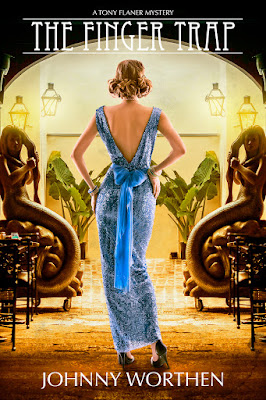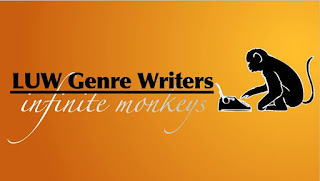Last week was one for the ages. I missed my weekly blog because I went camping and also because I received disturbing news about one of my publishers which distracted me. Jolly Fish Press announced that it would close its doors on October 31st. Jolly Fish publishes my young adult Unseen trilogy — ELEANOR, CELESTE and DAVID, and also my newest award-winning mystery THE FINGER TRAP.
The announcement was unexpected and shocking and possibly premature. There are tremors and rumors and possibilities being explored before the end of the month, which goes far to prove my point that deadlines are a magic to get things done.
 In any event, I want express my feeling about Jolly Fish Press because there are people who are angry right now, who are scared and lashing out. They’re being vocal and I think unfair.
In any event, I want express my feeling about Jolly Fish Press because there are people who are angry right now, who are scared and lashing out. They’re being vocal and I think unfair.
I consciously chose a career in writing. I did not slide into this. I do not do this as a hobby. This is my job. Before choosing it, I did the research and saw that my chances were as bleak as I could imagine, and yet I went forward anyway. My experience has shown me that it is even harder than I thought it would be. Such is the course of an artist in our society.
Because of my financial position, politics and faiths, I can measure success without dollar signs and this has kept me going. But even bringing money into it, compared to so many others and where I was a few years ago, I have to admit that I have had a share of success. I am lucky. I realize that. This is a subjective business (see previous post). My luck and my success have come about because some small presses, some cool editors, and some awesome publishers believed in me and gave me a chance.
That is all a writer can hope for: a chance.
 Small presses can take chances big presses can’t. They can change and adapt faster (and crash and burn quicker) than their big brothers. It’s a fertile ground for new talent, unusual stories, experimental fiction—ART. They fill a need and give people like me their start.
Small presses can take chances big presses can’t. They can change and adapt faster (and crash and burn quicker) than their big brothers. It’s a fertile ground for new talent, unusual stories, experimental fiction—ART. They fill a need and give people like me their start.
Jolly Fish symbolizes the noble small press to me. It burned fast and hot and twisted and turned, won awards, had best-sellers, rose and fell, taught people, inspired people, pissed people off, missed deadlines, kept going and kept on, while educating itself and fighting for survival in a business whose heyday is a century past, all the while, giving writers a chance.
A chance.
Publishing is a brutal business. If it’s not money, it’s personality that gets in the way. Because of JFP and the success I had with them, I’m actually well equipped to handle their demise should that happen. I have an excellent agent that I wouldn’t have without them. I’m luckier than most and I recognize that part of my luck came from hooking up with JFP when it was first starting and I was first starting. It was a perfect marriage.
 It is easy to pile on and blame when things go wrong. There is sudden change here and that is always hard. There are the stages of grief at play here too; I get it. I’m right there with everyone. But I have no ill will for JFP. None at all. I am sorry to see it go, sorry to see the end of a dream and the end of a dream-maker which is a small press that can give chances.
It is easy to pile on and blame when things go wrong. There is sudden change here and that is always hard. There are the stages of grief at play here too; I get it. I’m right there with everyone. But I have no ill will for JFP. None at all. I am sorry to see it go, sorry to see the end of a dream and the end of a dream-maker which is a small press that can give chances.
Jolly Fish Press gave me chances in spades— editing help, fantastic covers, distribution, marketing assistance (as far as they could), advice, tips, and moral support in a most demoralizing field. We’re all making it up as we go along and anyone who says otherwise is a damn liar. That goes for life as well as modern publishing. Jolly Fish played fair with me and resorting to Hanlon’s Razor when we were in doubt, our relationship has been friendly, professional and desperate as only the combination of art and business can be.
I would not be where I am today without them.
I will mourn Jolly Fish Press if they do die, but I will also be forever grateful for what they did for me and what they did for so many other authors. There are people behind the press, do not forget, and I know them to be good people and this is as hard if not harder for them than it is for us authors. I have no doubt they did the best they could. This is a brutal business and as much of it as I’ve seen, they’ve stood out to me as one of the good guys. Even now they are fighting for their people—authors, editors, investors—still fighting in this harsh, high-turnover, burn-out business—fighting for whatever fate will allow.
All things pass and happiness comes not from false entitlement, but from gratitude.
Thanks Jolly Fish.










